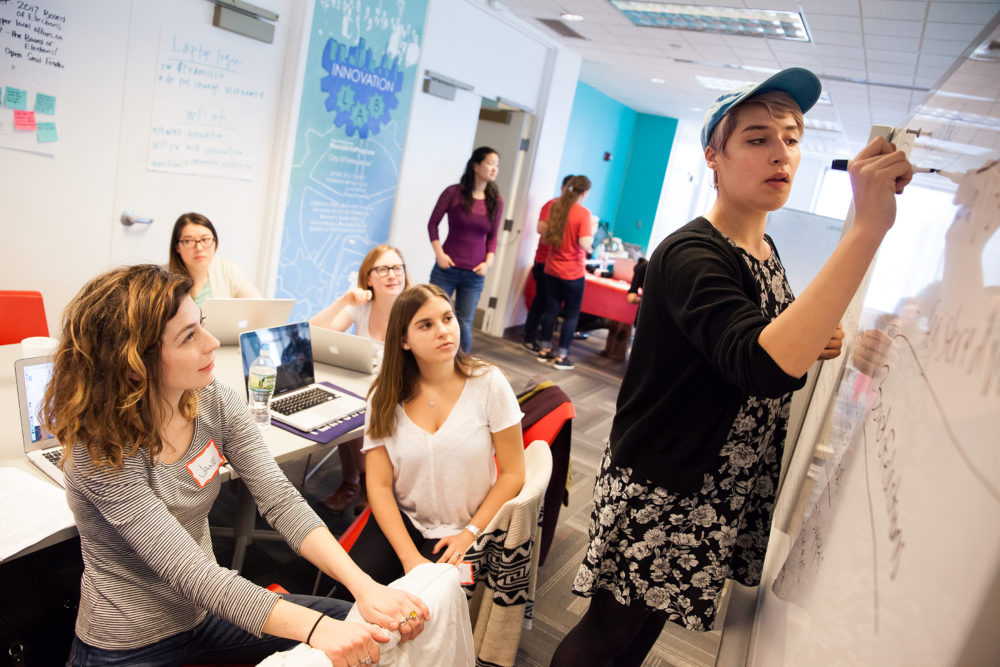At last month’s Code for Philly Civic Engagement Launchpad event, I had the chance to help project teams identify solutions to problem statements using design thinking methods. Several colleagues from the City of Philadelphia and I started by helping teams brainstorm ideas. We then took those ideas, grouped them and placed them on a matrix to prioritize which ideas could have the highest impact for the lowest cost.
By design, some of the ideas were left on the table. With the new Launchpad model, #CELaunchpad project teams initially focus on solutions that can be demoed within a month, with the goal showing off a veritable alpha version of their product. But what happens after this monthlong sprint is over? And what about the ideas that are left behind?
My first civic tech project in 2013 was focused on finding ways to increase access to food resources for those in need. It was built on top of work from a previous hackathon project with the same aim. While I learned so much while working on this project, our project ultimately folded. Reassuringly, I have seen others in the civic tech community pick up where my team left off, advancing solutions for our shared problem statement.
That’s the beauty of hackathons, civic tech, open source and now, launchpads. Hacking events like launchpads, in particular, are often overlooked as great places for working on existing projects. I have seen the work of successful, existing civic tech projects like Councilmatic not only extended between hacking events, but between multiple cities! (Councilmatic.org shows three active city repos.) Two of the six active projects from #CELaunchpad started prior to the Launchpad. (Find Technical.ly coverage of Councilmatic here.)
Working in city government is an incredible, challenge-rich experience. Those who work in city government know the vast number of civic problems that could be mitigated by the types of solutions considered during hacking events like #CELaunchpad. As teams finish the initial versions of their launchpad projects, there is opportunity to begin to tackle some of the initial ideas originally left on the table or not started at all. Often these are the problems that are the hardest ones to tackle.
The continuity of how civic tech projects are built, and how civic problems are realized, not only answers the question of “What next?” but also “Where do I start?” Everything in civic tech is an entry point. Interested? Code for Philly hosts meetups every Tuesday. Let’s build off of their work and solve hard problems together.







